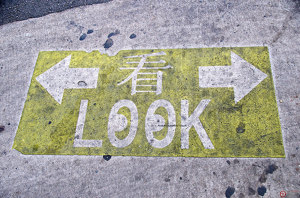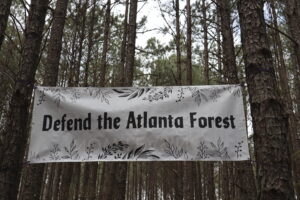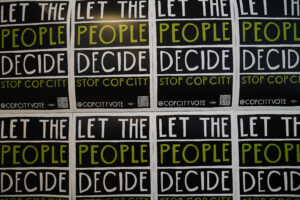FBI Engaged in Large-Scale Group Profiling
Researchers at the ACLU recently uncovered an FBI program that uses census data to draw maps that link racial and ethnic communities to certain types of crimes. The investigations, known under the names of "assessments" and "domain management," appear to have been going on for several years. (more)
Researchers at the ACLU recently uncovered an FBI program that uses census data to draw maps that link racial and ethnic communities to certain types of crimes. The investigations, known under the names of “assessments” and “domain management,” appear to have been going on for several years.
Muslims, Middle-Easterners, Chinese and blacks are among the groups investigated in various agency memos. A report that claimed to document the expansion of a black separatist group recorded the growth of the black community in Georgia, and the existence of criminal organizations run by or populated with Chinese qualified the entire Chinese community of San Francisco for investigation.
The ACLU claims the investigations, by basing criminal probes on race, ethnicity, national origin or religion and by targeting people who gather at protests or campaign events, violate Americans’ constitutional rights. The profiles lend themselves to the sort of Hoover-era disruption strategies that were used to deprive certain groups of freedom of speech, assembly and more and could be used to strip entire communities of participation in American democracy. –Alexander Reed Kelly
Your support matters…Justin Elliott at Salon:
What part of the Constitution does this violate in the ACLU’s view?
It violates the First, Fourth and 14th amendments. This program is entirely targeting communities of people for investigation based on their race, ethnicity, national origin, or religion, denying them equal protection under the law — and also targeting people because of their First Amendment-protected activities. They are then conducting broad suspicionless investigations called assessments, and collecting information in which there are Fourth Amendment concerns that it is unreasonable to conduct such invasive investigations.
One of the documents we released this week is an FBI memo to the field where they discuss what type of information they want collected during assessments. That document shows this isn’t a minimally invasive investigation. It collects a tremendous amount of material so the FBI can build dossiers against people with no reason to believe that they as individuals were involved in any kind of wrongdoing. It also authorizes what it calls a “disruption strategy,” in which, after all the information is collected and the threat is otherwise resolved, the FBI can continue doing other things like performing interviews, arrests and source-directed operations. Back in the Hoover era, the FBI’s COINTELPRO included a disruption strategy that was later found to be aimed at obstructing First Amendment-protected activity. So we have serious concerns about what this new disruption strategy might be doing and who is overseeing it.
Independent journalism is under threat and overshadowed by heavily funded mainstream media.
You can help level the playing field. Become a member.
Your tax-deductible contribution keeps us digging beneath the headlines to give you thought-provoking, investigative reporting and analysis that unearths what's really happening- without compromise.
Give today to support our courageous, independent journalists.






You need to be a supporter to comment.
There are currently no responses to this article.
Be the first to respond.